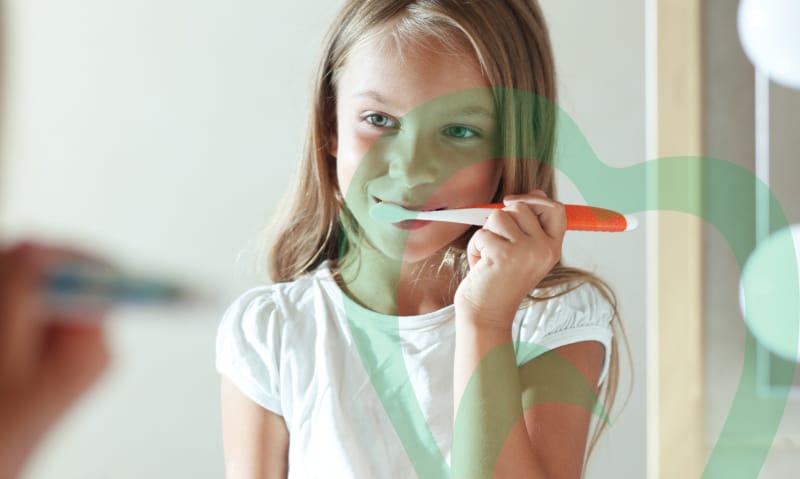5 Signs Your Child Is Ready to Brush Their Teeth Independently

What age can children brush their own teeth?
Your child’s early oral health development helps provide a foundation for lifelong oral health. There are several key areas that parents need to focus on, from making sure their child visits the dentist when they should to taking care of oral hygiene at home. At some point, your child will be ready to handle their own tooth brushing or flossing routine.
You can look for these 5 signs to tell when the time is right.
1. Your child is at least six years old.
Young children need their parents to handle brushing and flossing to ensure that they maintain good oral hygiene. It’s important to keep this up until a child can safely avoid the potential tooth decay and other issues that come with sub-par brushing and flossing.
In general, the minimum age children can brush teeth independently is six years old. Children younger than this will still need help, regardless of how enthusiastic or prepared they might seem. Keep in mind that six is only the minimum, so make sure that your child meets these other criteria as well.
2. They’ve been practicing under your supervision.
While your child shouldn’t be brushing independently until at least six, they can start learning under your supervision long before that. In fact, you can start teaching your child proper brushing techniques around the age of two.
Your child can practice brushing their teeth before you take over to ensure that the job is done right. Over the course of several years, they’ll develop a clear understanding of proper brushing technique that will ensure their oral hygiene routine is effective.
3. They’ve mastered other tasks involving fine motor skills.
Brushing their teeth is just one example of the fine motor skills that children gradually pick up. To understand whether they’re ready to brush independently, take a look at your child’s progress in other tasks.
Are they able to tie their shoelaces? Can they write their name? These and other tasks all involve fine motor skills that require a certain level of control, and that control is needed to ensure proper brushing and flossing as well.
4. Your child wants to brush their own teeth.
Another key part of determining whether they’re ready is waiting for your child to express a desire to start brushing independently. Expressing that desire is often a sign that your child feels they’re ready.
However, keep in mind that your child could also express this on their own long before they’re actually ready. In fact, some children might want to take over so they can avoid the experience of brushing altogether. Make sure that your child shows more signs of being ready in addition to wanting to brush on their own.
5. You’ve taught your child how to floss.
You can ask any pediatric dentist and they’ll stress that flossing is just as important as brushing. People of all ages overlook flossing more than they should, and that’s not the foundation you want for your child’s oral hygiene routine.
Flossing can be more difficult than brushing, so you’ll need to take extra care to teach your children how to floss and ensure that they can handle it. You may need to take a gradual approach where your child can handle brushing but still needs help with flossing for a while.
Making sure your child is brushing properly.
When it does come time for your child to start brushing independently, you should take a few simple steps to ensure that they’re brushing properly. First, you should still be checking in to ensure that your child is brushing twice each day and flossing so that their oral hygiene routine sticks.
It’s also important to ensure that your child is brushing for the whole two minutes each time. Children (and many adults) tend not to brush for as long as they should or overestimate how long they’re really brushing. A simple timer, a fun app, or a musical toothbrush are all great options to keep your child’s brushing routine on track.
Keep in mind that your child will still have some way to go once they get started. You can’t expect them to be perfect at brushing independently right away; instead, let them develop at their own pace. The best thing you can do is provide the support and guidance they need to keep improving their oral hygiene.
A Dentist in Omaha for the Whole Family
The right oral hygiene routine is just one part of ensuring your and your family’s continued oral health. You also need a dentist for children who can provide routine dental exams, cleanings and treatment options to deal with a wide range of dental issues. The Tooth Doc provides care for both children and the whole family in a warm, friendly environment. We are committed to improving the health of our community. Reach out to book your appointment with us today.